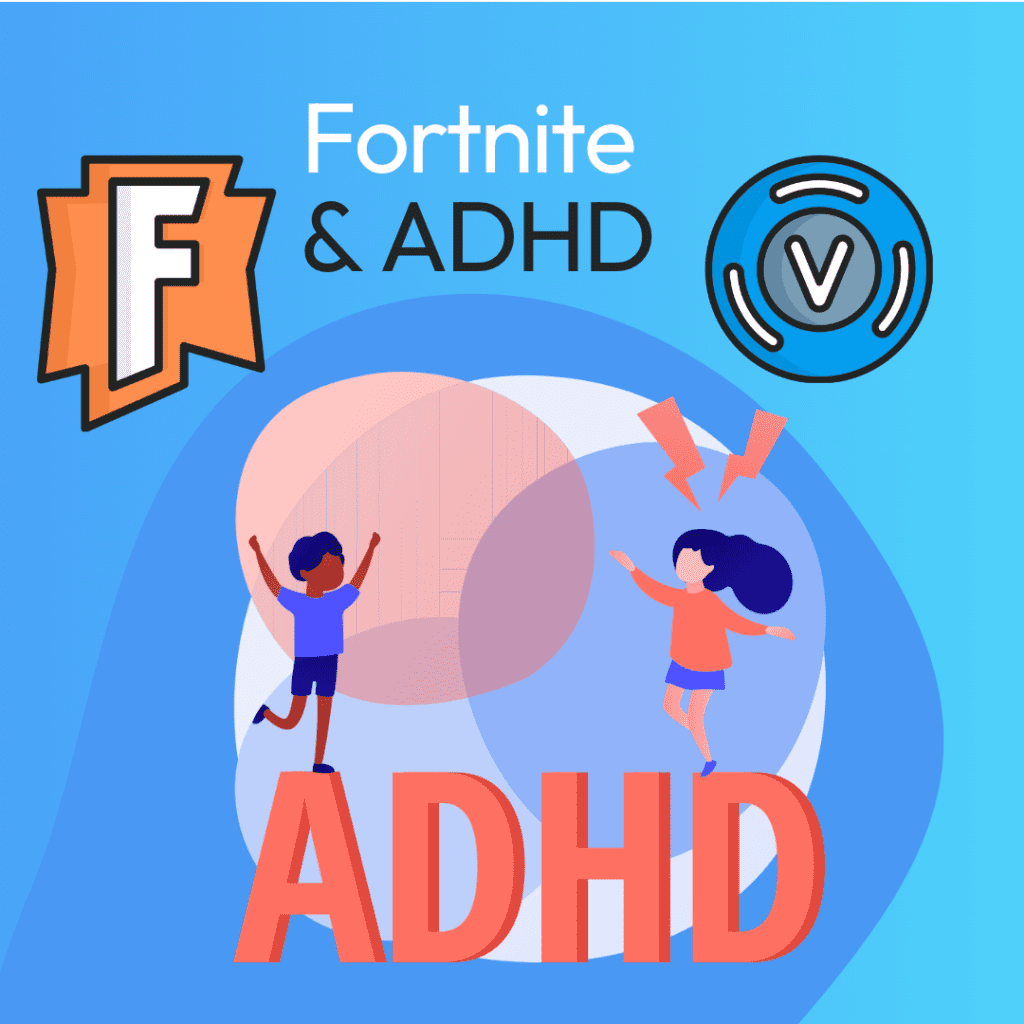Should I let my child with ADHD play Fortnite? What are the pros and cons?
My husband, now 40, was diagnosed with ADHD in middle school. He has taken medication to help his focus for more than half his life now, and on days when he doesn’t take his prescribed medication, I find he is a different person. He has always described having ADHD to me (someone who has never been diagnosed with ADHD or other similar disorders) like this: “My brain, unmedicated, is like a TV whose channel keeps changing. I can’t get it to stay on one channel long enough to focus on the programming. Once I take my medication, I can stop on one channel and hone my focus.” This explanation has helped me understand him so much throughout the years we’ve been married.
Always an avid gamer, my husband enjoys spending downtime playing video games. While he has enjoyed all the various Zelda games throughout the years and considers himself a pro at all the various versions of Mario Bros. on the market, his most current obsession is Fortnite. He can sit there for hours, battling it out with other players as he tries to win the game and be the last player standing. He sometimes plays with one of our daughters and sometimes plays alone, but he can easily waste away an afternoon trying to beat his opponents in Fortnite.
It made me wonder- is Fortnite a good game for him to be playing with ADHD?
What is ADHD?
ADHD, or Attention Deficit Hyperactivity Disorder, is a common neurodevelopmental disorder often diagnosed in childhood. Children with ADHD can have trouble focus, lack impulse control and or can be overly, or hyper, active. Children with ADHD might fidget a lot, talk quite a bit, daydream frequently and/or forget or lose things regularly.
What causes ADHD? How is it treated?
The cause of ADHD is unknown. While some doctors think that there could be some pregnancy-related behaviors that might elevate a child’s risk of being diagnosed with ADHD at some point, there is no way to know for sure what causes ADHD.
ADHD is most commonly treated with a combination of behavior therapy and medication. If the child who is diagnosed with ADHD is preschool aged or younger, it is quite common that medication will not be recommended yet. ADHD can be managed with things such as a healthy diet and exercise. Like with my husband, it can last into adulthood, although it may present differently in adults than in children.

Video games & ADHD
Video games are fun but addictive by nature. They are meant to be entertaining, skill-building and often social activities kids can do on their own or with friends. They encourage kids to think creatively, to problem solve and oftentimes to work together to reach a goal or beat an opponent. When a player loses, they often want to try again to try and change the outcome. When a player wins, they often want to try again to see if they can improve upon their previous performance. Most often, they simply just like the warm fuzzies they get when they win the game.
But if video games, such as Fortnite, are addictive for kids who don’t have ADHD, what are they like for kids that do have ADHD? Some parents worry that Fortnite, a favorite amongst young kids and played regularly by millions around the world, is problematic for kids with ADHD. Why? Because it is addictive and encourages kids to come back and continue to play over and over again. It is fast-paced, involves risk taking and requires focus to complete tasks and challenges. It might be hard for a kid with ADHD to stop playing once they’ve started.
But ADDitude Magazine, a magazine geared toward parents of kids with neurodevelopmental disorders, suggests that Fortnite, in moderation, is totally okay for kids with disorders such as ADHD. It argues that “the high level of risk, the need to remain alert for external distractors, and the opportunity to use hands-on skills for building make Fortnite and ADHD a natural match.” Essentially, Fortnite is an easy match for kids with ADHD and other similar disorders because it is engaging for children who might otherwise struggle with paying attention. Because the game is fast-paced and is often over quickly, it requires the brain to focus in on the task at hand and complete the task quickly.
The Bottom Line
Recent studies suggest that, overall, the increased use of digital media in kids has led to an increase of ADHD symptoms. In general, screen time is usage is up and it is decreasing our ability to focus across the board. Like with anything else, it is important to set limits with kids and screens, and this is a universal- not just limited to kids with neurodevelopmental disorders.
So encourage your kids to play a round or two of Fortnite and then get outside and enjoy the sunshine before winter sets in and it’s too cold to spend much time outside!